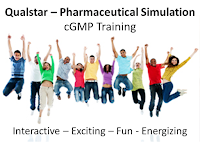The FDA is committed to protecting consumers from the threat of stolen, counterfeit, and diverted FDA-regulated products such as prescription or over-the-counter medicines, medical devices, or infant formula.
The U.S. Food and Drug Administration sent a
letter (FDA urges industry to prevent cargo thefts - UPI.com), to companies and a wide range of other key stakeholders detailing the agency’s concern over cargo and warehouse thefts of FDA-regulated products. In its letter, the FDA seeks to:
- raise awareness among industry about each firm’s responsibility to review and strengthen their security practices
- inform industry of the actions the FDA will take when the agency becomes aware of a large-scale theft, and outlines steps that firms should take
- emphasize the importance of notifying and informing members of the supply chain and the public after thefts occur.
The FDA believes every company should have a clear plan developed on how to respond to these incidents, since swift action is essential. The agency believes prevention of cargo theft is critical. To help achieve that goal, the FDA will continue to work closely with manufacturers and wholesalers to find ways to better secure the nation’s supply chain, which protects the public health.
Additional FDA Resources:
The FDA Cargo Thefts Webpage - FDA created this webpage to provide timely notice to the public about cargo thefts involving FDA-regulated products that have been stolen either from warehouses or tractor-trailers.
Return Home:
http://drughealth.blogspot.com/









